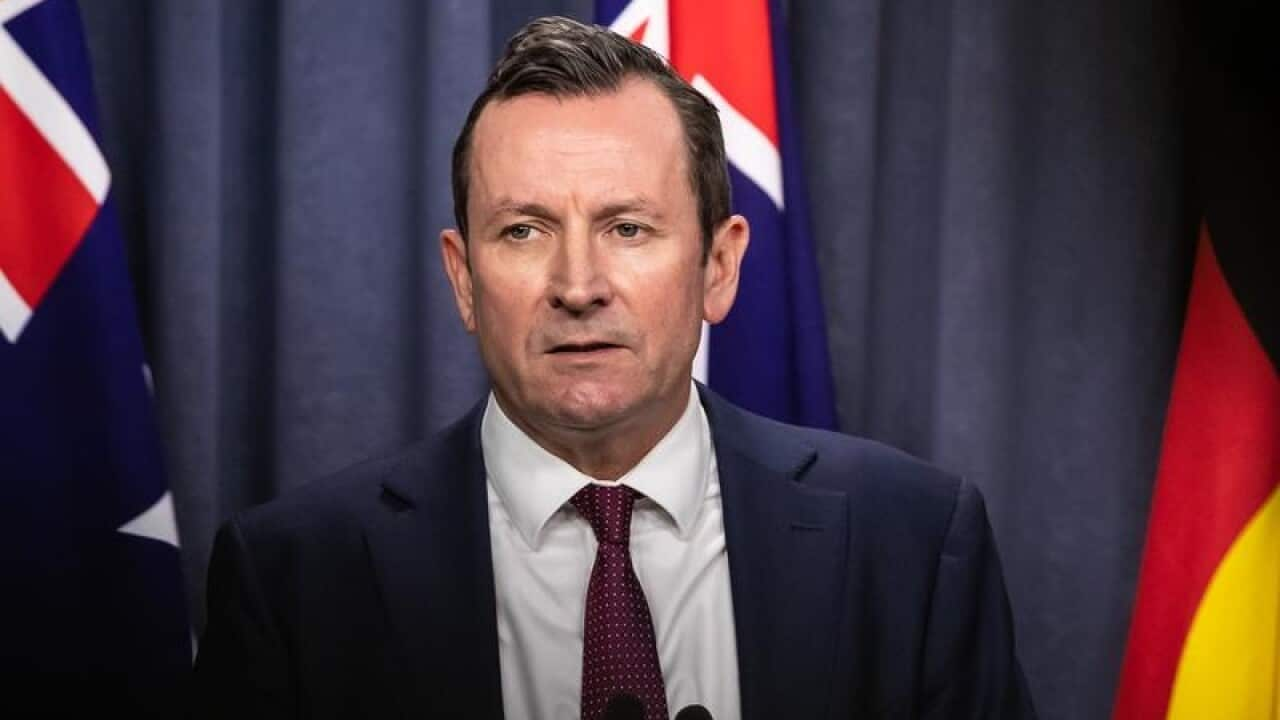Western Australia will be effectively closed to every state and territory for Christmas under plans to further strengthen border controls.
From 12:01am on Monday, WA will reintroduce a hard border to Queensland and force visitors from Tasmania to enter 14 days quarantine.
Queensland will be classified as a medium-risk jurisdiction, denying entry to non-approved travellers, and Tasmania moves to low-risk status.
Both states have relaxed their own border restrictions as the highly-contagious Omicron coronavirus strain spreads across the country.
WA will reopen its borders on February 5, when the state's double-dose vaccination rate for residents aged 12 and over is projected to reach 90 per cent.
"We're doing everything we can to ensure that we keep Western Australia COVID-free until at least when we bring the border down," Premier Mark McGowan told reporters on Friday.
"We want to try and get through the Christmas and New Year period without any spread of the virus in Western Australia. We don't want to see the pandemonium and chaos that is occurring in states in the east occur here over this crucial period for families and small businesses."
WA's first dose rate is expected to hit 90 per cent on Friday, while the double-dose rate is around 81 per cent.
The premier this week announced WA would slash its international arrivals cap and tighten the border to NSW after recording its first known Omicron cases in hotel quarantine.
WA currently receives 530 international arrivals per week but the intake will be halved from next Thursday.
It comes after a number of breaches involving ventilation issues at Perth's quarantine hotels, two of which prompted short lockdowns earlier this year.
From 12.01am on Saturday, NSW will join Victoria in moving from high risk status to extreme risk.
Travel will not be permitted from NSW except under extraordinary circumstances, with approved travellers required to return a negative test, be double-vaccinated and undergo 14 days' hotel quarantine.
The daily infection rate in NSW has surged above 2000 amid warnings the state could have 25,000 cases per day by the end of next month.
Once WA's borders reopen, transitional restrictions will include a requirement to wear face masks in high-risk areas including on public transport.
Mr McGowan has not ruled out enforcing mask-wearing in more settings if the number of cases in NSW continues to spike.
"If NSW go to 25,000 cases a day, inevitably it would get here no matter what we do," he said.
"So we've just got to make sure we plan for it and get to high levels of vaccination before it does."


